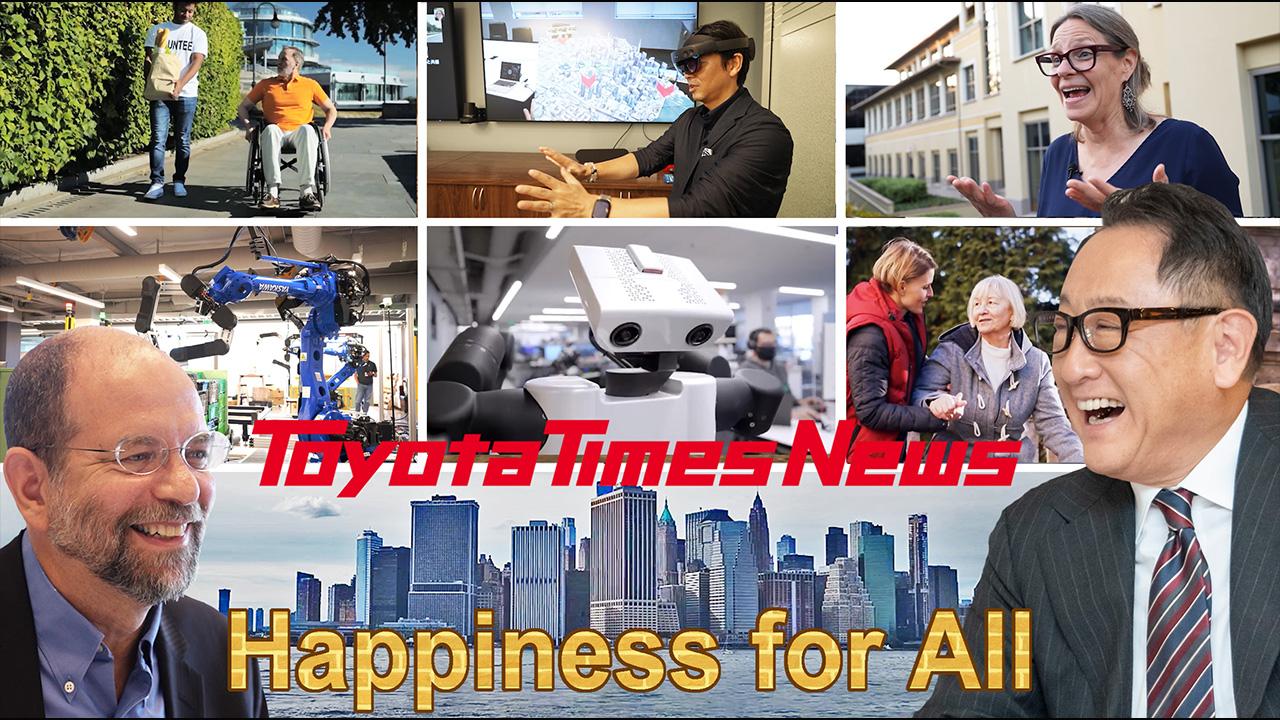
TRI (Toyota Research Institute) is working on cutting-edge AI research. Here, we take a look at AI development rooted deeply in the ideas of Chairman Akio Toyoda and Toyota itself.

Based in Silicon Valley, TRI (Toyota Research Institute) is committed to continuous research on cutting-edge AI. Yuta Tomikawa went to San Francisco to take a look at their diverse development activities.
“Our mission is to provide goods and services that bring happiness to the people of the world. It is to produce happiness for all.”
In May 2020, (then) President Akio Toyoda sent out this message. Since then, it has been a common mission for the research of both Toyota and TRI.
As the aging population becomes a social issue on a global scale, the question becomes, what happiness can be produced through automation? By interviewing people living in Japan and the United States, researchers discovered that they wanted more support for loneliness and loss of purpose rather than for physical disability. TRI began thinking of how to use AI and robot technology to produce happiness not by doing people’s jobs for them, but by helping people recover their sense of purpose and participate in society.
A robot engineered to carry things touches the object before carrying it to discover the best place to grip it and the degree of force to apply, reducing shipping accidents. A robot that can shop for people not only differentiates between products but also determines the best way to take the item from the shelf, completing the task.
By researching technology that is a close part of people’s everyday lives, TRI aims to produce happiness for all. CEO Gill Pratt has this to say:
Centering people in research is at the core of Toyota. (...) Our purpose is to make the customer happy and to improve the quality of life for the customer. This is not limited to cars; all the work that we do is the same way.
So, why is Toyota, a mobility company, aiming to produce happiness for all through AI development? Is there a final form of this research? See for yourself in this week’s program.

